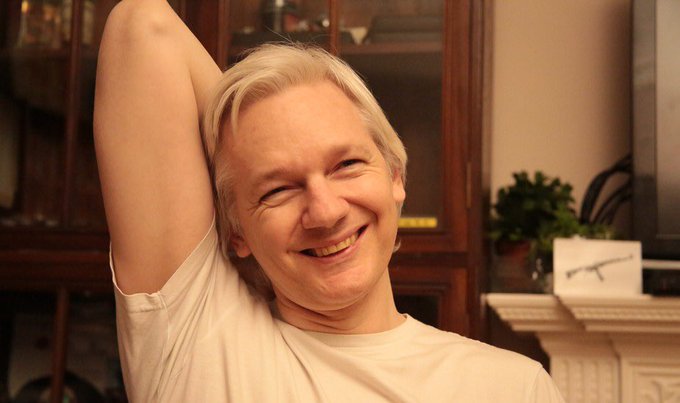(Ayyaantuu)- Sweden’s director of public prosecution says she has decided to discontinue the investigation into WikiLeaks founder
(The Guardian) — Swedish prosecutors are to drop their preliminary investigation into an allegation of rape against the WikiLeaks founder, Julian Assange, bringing an end to a seven-year legal standoff.
The decision was taken after prosecutors concluded that “at this point, all possibilities to conduct the investigation are exhausted”, Sweden’s director of public prosecutions, Marianne Ny, said on Friday.
“In order to proceed with the case, Julian Assange would have to be formally notified of the criminal suspicions against him. We cannot expect to receive assistance from Ecuador regarding this. Therefore the investigation is discontinued.
“If he, at a later date, makes himself available, I will be able to decide to resume the investigation immediately.”
The Wikileaks founder sought asylum in Ecuador’s embassy in London in 2012 after losing court battles to avoid extradition to Sweden over the claims, which he denies.
A second allegation of sexual assault, made by a second Swedish woman, was dropped by Swedish authorities in 2015 after the statute of limitations expired.
Shortly after the announcement, an image of Assange smiling was posted to his Twitter account.
View image on Twitter
With the threat of extradition to Sweden removed, the Australian, 45, could potentially opt to leave the embassy.
However, Assange’s lawyers have repeatedly said that he would not do so without assurances that he willnot face extradition to the US over possible espionage charges, linked to Wikileaks’ publishing activities – the basis on which Ecuador granted him asylum.
The Metropolitan police in London said Assange would also face immediate arrest for breaching his bail conditions by entering the embassy, after a warrant was issued when he failed to attend a magistrates court after entering the embassy.
“The Metropolitan Police Service is obliged to execute that warrant should he leave the embassy,” the statement said.
It added: “Whilst Mr Assange was wanted on a European arrest warrant (EAW) for an extremely serious offence, the MPS response reflected the serious nature of that crime. Now that the situation has changed and the Swedish authorities have discontinued their investigation into that matter, Mr Assange remains wanted for a much less serious offence. The MPS will provide a level of resourcing which is proportionate to that offence.”
It is understood the withdrawal of the European arrest warrant issued by the Swedish prosecutor will have to be formally confirmed by a court in London, but it is possible that could be completed by the end of the day.
The Home Office said the decision to drop the rape investigation was a matter for the Swedish authorities, and not one in which the British government had any involvement.
Reuters reported in March that a long-running grand jury investigation into WikiLeaks had been expanded to include recent leaks of CIA documents, which Assange’s lawyers said strengthens the grounds for his asylum claim.
Assange was interviewed by the deputy prosecutor, Ingrid Isgren, in the embassy in November, following a lengthy diplomatic and legal impasse between the Swedish and Ecuadorian authorities.
The announcement on Friday followed a letter sent to the Swedish government by the government of Ecuador saying there had been a “serious failure” by the prosecutor, including a “lack of initiative” to complete inquiries.
The letter raised questions over developments in the US since the election of Donald Trump as president, including a speech by the CIA director, Mike Pompeo, describing WikiLeaks as a “hostile intelligence service” and a threat to US national security.
Recent public declarations such as this constitute an “obvious risk” for Assange, said the letter.
The US attorney general, Jeff Sessions, last month said arresting Assange was a priority. There are no charges against him though media reports have suggested the US justice department is considering how to bring them.
“We’ve already begun to step up our efforts and whenever a case can be made, we will seek to put some people in jail,” Sessions said.
Share
Follow @Medeshi


